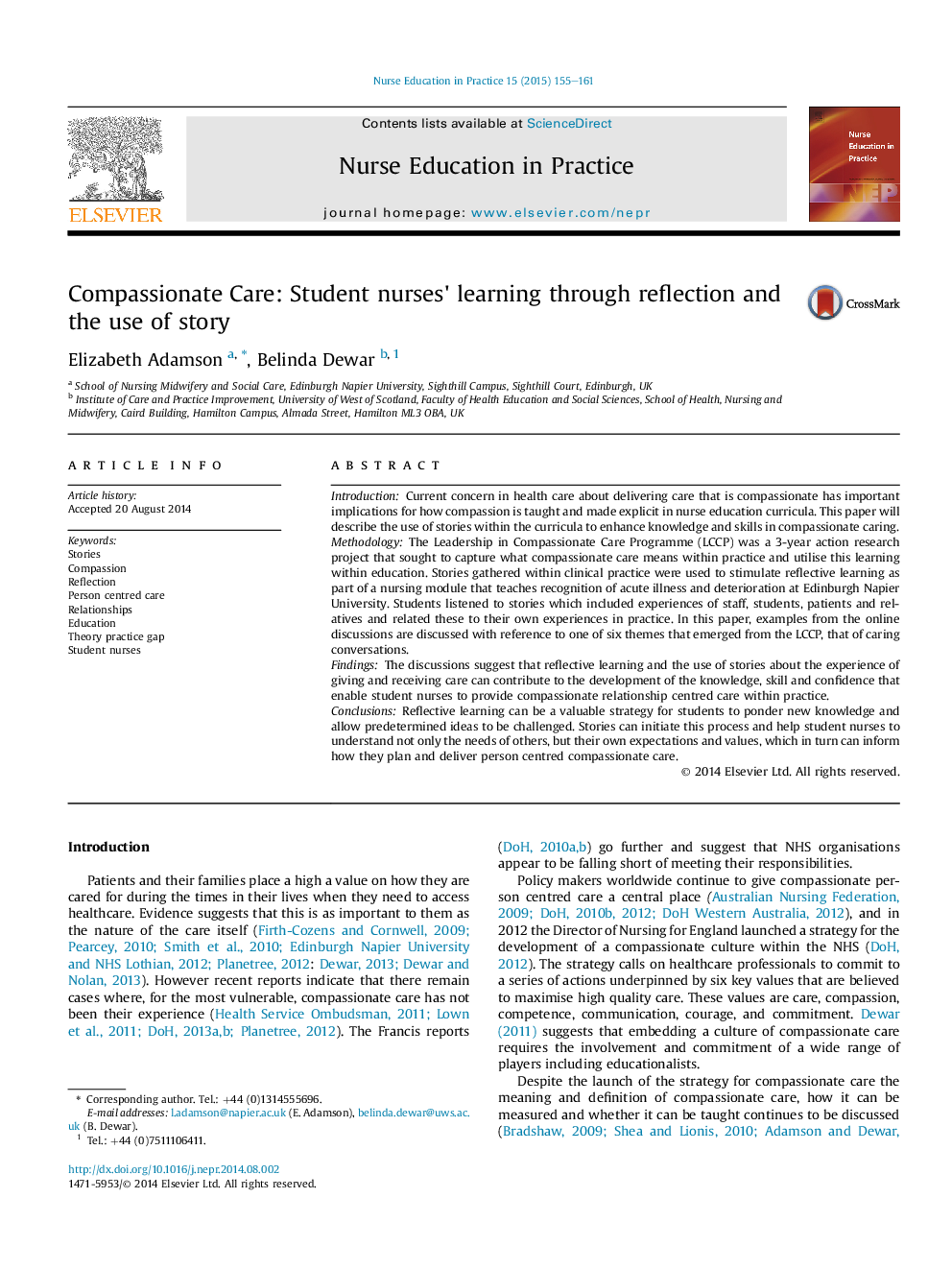| Article ID | Journal | Published Year | Pages | File Type |
|---|---|---|---|---|
| 366693 | Nurse Education in Practice | 2015 | 7 Pages |
IntroductionCurrent concern in health care about delivering care that is compassionate has important implications for how compassion is taught and made explicit in nurse education curricula. This paper will describe the use of stories within the curricula to enhance knowledge and skills in compassionate caring.MethodologyThe Leadership in Compassionate Care Programme (LCCP) was a 3-year action research project that sought to capture what compassionate care means within practice and utilise this learning within education. Stories gathered within clinical practice were used to stimulate reflective learning as part of a nursing module that teaches recognition of acute illness and deterioration at Edinburgh Napier University. Students listened to stories which included experiences of staff, students, patients and relatives and related these to their own experiences in practice. In this paper, examples from the online discussions are discussed with reference to one of six themes that emerged from the LCCP, that of caring conversations.FindingsThe discussions suggest that reflective learning and the use of stories about the experience of giving and receiving care can contribute to the development of the knowledge, skill and confidence that enable student nurses to provide compassionate relationship centred care within practice.ConclusionsReflective learning can be a valuable strategy for students to ponder new knowledge and allow predetermined ideas to be challenged. Stories can initiate this process and help student nurses to understand not only the needs of others, but their own expectations and values, which in turn can inform how they plan and deliver person centred compassionate care.
